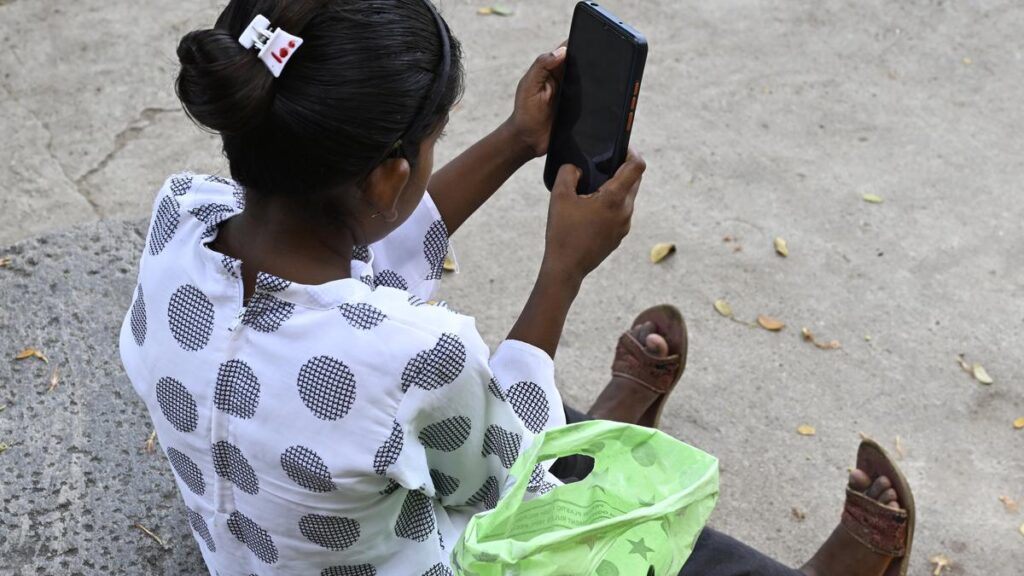Within two months of starting a parent group for management of technology addiction of their children, the SHUT Clinic at NIHMANS Centre for Well Being has received around 5,000 registrations from across the country.
Doctors at the clinic, which focuses on addressing problems arising from excessive screen use and internet addiction, have already trained more than 1,000 parents in effective techniques to manage their children’s screen-related issues.
Manoj Kumar Sharma, professor, Department of Clinical Psychology, who also heads the SHUT Clinic at NIMHANS, said the online training series was launched from May end to help parents manage their children’s excessive screen use and related behavioural issues.
Redesigned
“Initially, we started the training with sessions spanning over four Saturdays on Zoom. But, following the overwhelming response, we have now redesigned the sessions and reduced the duration to two Saturdays. This is to ensure all those who have registered under the parent group are covered at the earliest,” Dr. Sharma said.
The structured sessions guide parents on setting boundaries, fostering healthy offline activities, and identifying signs of problematic technology use. The high demand for these sessions, Dr. Sharma said, highlights the growing concern among parents about the impact of gadgets and screens on their children’s mental health and well-being.
Given the overwhelming demand, the SHUT clinic is working on scaling up capacity to reach out to all registered parents and also accommodate more in the coming months. “We are working on developing online modules and training more facilitators to help parents implement practical strategies to promote healthy technology habits at home. We are not just addressing a child’s behaviour but fostering healthier family dynamics,” the doctor said.
Helplessness
Clinical psychologists and research scholars at SHUT clinic, Neha John and Ahsana T.H., who are among those who provide the online training sessions to parents, said most commonly the participants expressed helplessness as they are unable to handle the addiction in their children.
“We have parents telling us they feel helpless as children refuse to spend family time. They express difficulty in handling their teenagers, who are glued to screens late into the night or become aggressive when asked to log off,” said Ms. John.
The sessions are designed to empower families to address these issues without resorting to confrontation. “We advise parents on setting consistent rules for screen time, designating device-free zones and hours at home, encouraging outdoor play, hobbies, and family interactions. It is most important to understand the psychological triggers behind excessive screen use,” Ms. Ahsana said.
Post-pandemic
Although the SHUT Clinic has been seeing cases of technology addiction since its inception in 2014, there has been a sharp rise in families seeking help during and after the COVID-19 pandemic. “Increased online schooling, social isolation, and easy access to smartphones and tablets left many children and adolescents deeply entrenched in unhealthy digital habits,” Dr. Sharma said.
“We also help parents reflect on their own technology habits. Children often emulate what they see. If parents are on their phones constantly, it is harder to enforce limits. Technology itself is not the enemy. It is about balance,” he added.
Interested parents can contact NIMHANS Centre for Well-Being (NCWB) on (080) 26685948, 94808 29670; nimhans.wellbeing@gmail.com
Over 40 calls a month on Digital Detox helpline
The Digital Detox helpline – 9480829675 – run by the SHUT clinic, which receives about 30 to 40 calls every month, has emerged as a crucial support system for those grappling with problematic technology use
Mr. Manoj Kumar Sharma said its consistent call volume indicates not just the helpline’s popularity but also the increasing recognition of screen addiction as a serious mental health concern. Callers include students, working professionals, and anxious parents seeking help for their children, all of whom turn to the helpline for practical strategies to limit screen time, cope with withdrawal symptoms, and rebuild offline connections.
Published – July 26, 2025 09:28 pm IST


